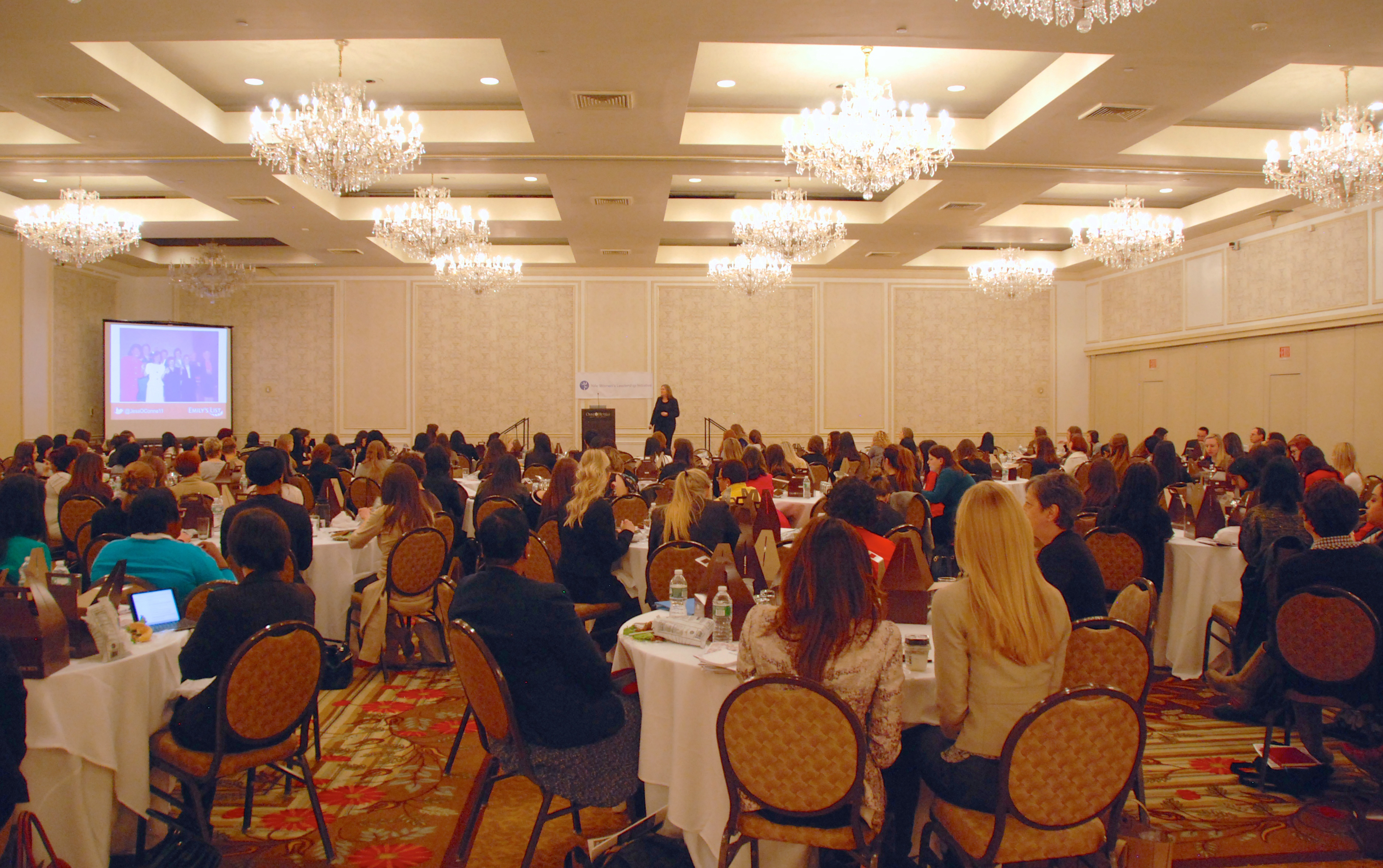
Courtesy of Megan McHale
On Saturday, hundreds of aspiring leaders gathered at the Omni Hotel for the eighth annual Women’s Leadership Initiative conference.
The conference brought over 60 speakers to discuss and showcase all aspects of female leadership. This year’s theme, “W.E. Women,” was both a “declaration of the female strength, independence and agency that women find in themselves and in each other,” as well as a reinforcement of “the collaborative nature of female empowerment,” according to a promotional pamphlet.
Conference chair Yelena Gankin ’17 started the day’s events by welcoming old and new faces with her opening remarks. Gankin described the conference as “a large conversation on leadership, gender and progress,” as well as “a networking opportunity between alumni, Yale students, women from across the world and conference speakers.”
This year represented a new direction for the conference. Gankin said that in the past, the WLI conference focused on “traditional success” — like the achievements of CEOs and finance and law executives — which too narrowly defines family leadership. She added that this year’s events sought to create a more engaging and inclusive conversation about women’s leadership.
Following Gankin’s opening remarks, keynote speaker Emilie Aries — founder and CEO of the innovative training organization for women, Bossed Up — delivered an energetic address about life and work as a woman in the modern economy. Providing women leaders in the room with advice on how to craft a successful and sustainable career, Aries’ message especially targeted college-age audience members.
Citing studies in the social sciences, her own original research and personal experience, Aries shed light on the often troubling realties women, especially women of color, face in the modern workplace. Pointing to gender gaps in leadership that “haven’t budged for 25 years,” Aries characterized the biases affecting women as much less overt than that in generations past and, for this reason, often more difficult to tackle.
To combat these challenges, Aries suggested tactics the budding female leader could practice to promote wellness and fulfillment. By abandoning a “martyrdom mindset,” prioritizing personal purpose over perception and learning how to be effectively assertive, Aries said women can find sustainable success in spite of the prejudice they face.
After the opening keynote address, attendees broke up into a broad array of forums on topics relevant to women leaders. Covering everything from female leadership in STEM to the meaning of gender, these forums hosted prominent professionals from a variety of fields, including the lead specialist on reproductive health at the World Bank, a comedian and writer for “Late Night with Seth Meyers” and the chief drama critic and entertainment writer for the New York Post.
Later in the seven-hour event was a lunch and second keynote address, given by Jessica O’Connell, executive director of EMILY’s List, an influential political action committee that works to elect pro-choice Democratic female candidates to office. O’Connell joined EMILY’s List from the Center for American Progress, a progressive think tank and advocacy organization where O’Connell worked as a senior vice president and the chief of staff. Having also served on the senior team for Hillary Clinton’s LAW ’73 2008 presidential campaign, O’Connell’s talk focused on her storied experience in the political realm.
Of particular note was the conference’s first transgender speaker, Peche Di, a Taiwanese model and founder of New York City’s only transgender modeling agency. Launched in May 2015, Trans Models has already received a great deal of attention in the media, with The Atlantic, The New York Times and Forbes each writing pieces on the agency.
According to Kendall Schmidt ’19 — moderator of the “Overcoming Gender Obstacles” panel at which Di spoke — the inclusion of a transgender woman in the conference reflected its commitment to being as welcoming and diverse as possible.
“I think this conference is a big step for WLI, especially because we had our first transgender speaker, and I think that is a direction we really need to be moving in,” said Schmidt. “We can’t just be focusing on cisgender women and the obstacles they face because, as feminists, we need to focus on all feminist communities, which includes disabled people, the LGBT community and gender non-binary people as well.”
This year also marked the first time non-Yale students attended the conference. With strong turnouts from Brown, Harvard, Suffolk, Quinnipiac and the Ivey Business School in Ontario, the conference successfully expanded the reach of its conversation.
The conference was also attended by a number of Yale faculty and alumni, many of whom are members of WLI. Among these attendees, molecular, cellular and developmental biology professor Valerie Horsley said she was impressed by how inspiring and well-organized the day was. She was particularly interested in certain ideas surrounding diversity she heard during the first panel she attended.
“All of the panelists really emphasized that having a diverse workforce is excellence, and that excellence is diversity,” she said. “It’s a great way for getting people on board for diversity, but also makes the organization or university stronger.”
The conference ended at 4 p.m. with a coffee and networking session.
WLI was founded in 2006 by five Yale undergraduate women to create a formal mentorship program to support women leaders at Yale.







